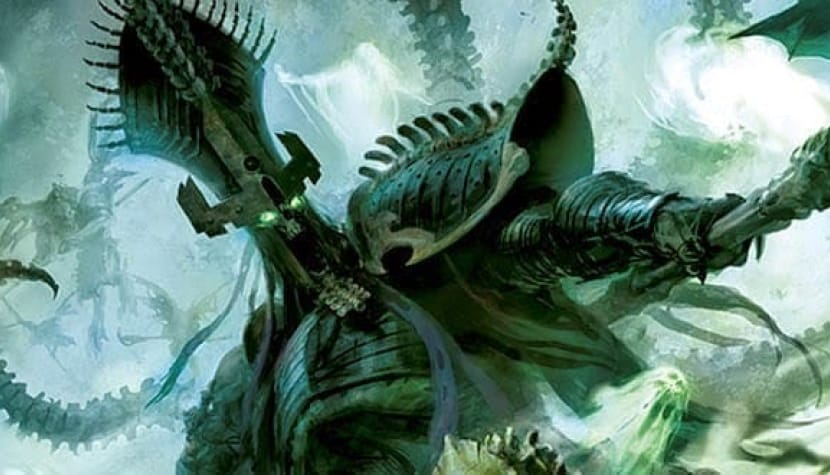TechRaptor Readers, hello. I originally intended to write an article that was independent from any other articles here. However, I have decided to change my plan and adapt the article ” Videos Games Make Heroes Not Criminals by Kindra. She wrote about gaming being a means to satisfy people’s fantasies and desires of heroics. I’m going to take a slightly darker view, and examine villainy as a way for people of all stripes to express their heroism.
The villains have always fascinated me. You name it: movies, TV shows, video games. A villain can make or break a plot. It doesn’t matter if it is the scenery-chewing drama of Ricardo Montalban, in Star Trek II : The Wrath of Khan or the tormented fallen heroes of Breaking Badand The Shieldor the comically unintelligent Dr. The evil villains always appealed to me more than the bland heroes. The bad guys are more interesting.

The fascination for evil is also carried over into gaming. In any game, I will almost always play the evilest character or faction that I can find. In Warhammer 40,000 it was the Dark Eldar. (Sorry Chaos, but you were beaten by drugged out BDSM space elves). Warhammer Age of Sigmar is dominated by the vast, shambling hordes of undead, and the not so sparkly Vampire Counts who command them. When I was looking through the different Warmahordes groups that will be covered in my future reviews, it’s the barbaric Skorne as well as the zombie pirates from Cryx who caught my attention.
What draws people to darkness? It depends who you are. The game mechanics are one of the main reasons. The bad guys often have better weapons, swords and equipment. Min-max players see the decision to go down the evil path as a simple math problem. They use (or abuse) the system designed by designers in order to win. Thematic and lore considerations are at best secondary.
I enjoy playing Warhammer 40000 with my fastest units. This allows me to ignore the terrain and the toughness of the opponent’s armor with very precise weaponry. This is evident to any Tyranid who has seen one of their monsters gunned by Venoms, or to an Imperial who watched their tank explode when a couple heat lances were fired at the rear.
Others (including myself) see the decision as an opportunity to change pace. The bad guy can make a variety of decisions and choices that would be impossible in real life due to the limitations of the laws and laws of nature and physics, laws and regulations of the society or personal ethics and morals. My morals and ethics would not allow me to brutally enslave someone for my own purposes, to force another person to die in a match rigged for my amusement or to horribly torture and disfigure an animal for the sake of my enjoyment. My Dark Eldar call it “Tuesday”, in the Dark City Commoragh.
After we have gotten over the excitement, let’s look at what playing the bad guy does not entail. It is not true that being the villain in any game means you are a bad person or an immoral one in reality. No definitive link has been made between them, regardless of any moral panics that may occur.
Since the 1960s, every new entertainment medium that has been introduced to society is scrutinized and criticized by moralistic busybodies. In the past, there were nannies with problem glasses who would condemn the latest entertainment media, be it comics in 1950, heavy metal in 1980 or 1970, or even video games today.
The whole thing was found out to be complete nonsense, and gamers look back with amused confusion. The rumors and news reports were discredited, people realized the Player’s Handbook did not teach children to fireballs out of their hands. After that, it was a simmering heap of coals.
There has never been a proven link between violent video games and violence. has been used to prove the contrary in multiple studies. Researchers found in a study that was published in Cyberpsychology Behavior and Social networking, “bad” gaming behavior actually makes people more moral. This is because gaming allows people to experiment with different behaviors and do so in a harmless and safe environment. It’s great to see some evidence that supports our “lived experience”. As an aside, I do not like that term even though it fits well in this case. I also like to see that researchers tell muckrakers and charlatans to quit asking about violent games as they are more interested in other issues.
What does it mean to you as a gamer on average? has no impact at all on your character. You are not a Nazi if you play as a German in Flames of War. You are not Charles Manson if you quicksave your Skyrim game to slaughter townspeople. Dark Eldar Haemonculus is not someone who leads a group of monstrosities and slaves that have been surgically enhanced and mutilated in an attack on a farming community. You should not take anyone seriously who tells you differently or uses your hobby to force you to change yourself to their liking. Take your controller or dice and start hacking, confident that you know the difference between reality and fiction better than anyone else.